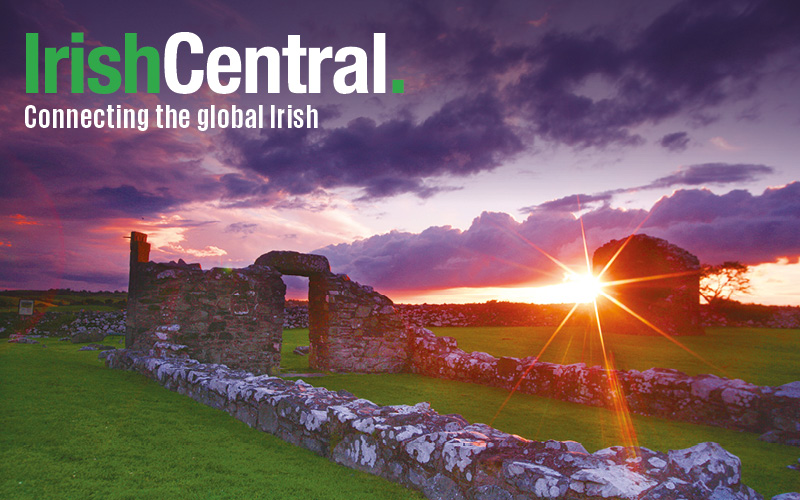Aidan is a name celebrated both in the pagan world of the Celts and the Christian annals where St.Aidan has a major presence.
St Aidan, in fact, was one of the truly outstanding figures of the early church. (He died in 651.) He was recruited from among the Irish monks on Iona to challenge the growing strength of paganism in Northumbria, England.
According to Bede’s ecclesiastical history of England, Aidan was a powerful, compassionate human who freed slaves and helped the poor in village after village.
Bede wrote: “Aidan of Lindisfarne (as he was known) was one to traverse both town and country on foot, never on horseback, unless compelled by some urgent necessity; and wherever in his way he saw any, either rich or poor, he invited them, if infidels, to embrace the mystery of the faith or if they were believers, to strengthen them in the faith, and to stir them up by words and actions to alms and good works. Whatsoever gifts of money he received from the rich, he either distributed them, as has been said, to the use of the poor, or bestowed them in exchanging the money to free slaves. Moreover, he afterwards made many of those he had ransomed his disciples, and after having taught and instructed them, advanced them to the order of priesthood."Hillary and Bill Clinton share adorable photos with daughter Chelsea's newborn son, Aidan https://t.co/VJUPT1NbWt pic.twitter.com/OWyXz1NCVr
— People Magazine (@people) June 19, 2016
The Gaelic name for Aidan was Aodh (pronounced very simply as just A) was also the name of a Celtic sun god. The Celtic sun god Aodh is an aspect of the Celtic god The Dagda. Aodh (sun god) fell in love with Ila (primal earth goddess). Their children were Kaido, the earth god, and Audrain, the fire god. The primal gods disappeared as their children rose in power.
Read more: Choose from the top 100 Irish names
There were additional Celtic gods and goddesses named Aodh, all in some way associated with flames, fire, and/or the sun.
Aodh is also a major figure in Gaelic mythology. The name is first seen as one of the legends of the Irish mythological cycle and was discovered in medieval works.
Aed, or Aodh,in the mythological cycles is is known from gaelic inscriptions as the eldest son of Lir, High King of the Tuatha de Danann, the magical tribe that conquered Ireland before the Celts and Aobh, a daughter of de Dannan chieftain Bodb Dearg. The legend of the Children of Lir is widely celebrated today and every Irish school child would know it.
According to tradition, Aoibh died in childbirth after bearing Lir four children (two sets of twins): Fionnuala, Aodh, Fiachra, and Conn of the hundred battles.
Aoife, the second wife of Lir, and in some versions of the story, the sister of Aobh, was very jealous of the children and conspired to kill them on a journey to see Bodb Dearg, the former King of the Tuatha de Danann. But for love of the Children of Lir, the servants of Aoife would not slay the children, and so she cursed them to live as swans for 900 years: 300 upon Lake Davra, 300 in the English Channel, and 300 on the open sea.
Legend says they kept their voices and learned all the songs and tales of Ireland, as well as the many languages brought by travelers from distant places.
There are numerous variations on the culmination of the story after the breaking of Aoife's curse, and most are obviously influenced by stories from Christianity.
In more modern times William Butler Yeats wrote one of his love poems "Aedh Wishes for the Cloths of Heaven," though later changed the title to “He Wishes for the Cloth of Heaven."
“Had I the heavens’ embroidered cloths,
Enwrought with golden and silver light,
The blue and the dim and the dark cloths
Of night and light and the half light,
I would spread the cloths under your feet:
But I, being poor, have only my dreams;
I have spread my dreams under your feet;
Tread softly because you tread on my dreams."
Perhaps the greatest poet in the Irish language was Again O Rathaille or Aidan O’Reilly also known as Egan who died in 1720. He witnessed the death of the old Irish chieftains and their way of life where the file or poet was a valuable part of the king's court. In this short extract Aogan curses the new breed, two Irishmen Muircheartach and Tadgh who had taken the soup and become British subjects.
A Bháis, do rugais Muircheartach uainn;
ro-dhéineach an uain do chách;
cuardaigh go fras Tadhg don chill,
An beirt leis ni cui e go bráth..
O Death, you have taken Muircheartach from us,
far too late in everyone’s opinion;
snatch Tadhg quickly also to the graveyard,
those two should never be separated …
Famous Aidans of the modern era include actors Aidan Turner, tipped to be the next James Bond, Aidan Quinn and Irish murder victim Aidan McAnespie, a young man shot in the back by the British Army in 1988 after walking past a checkpoint on his way to a football match. Many football teams are called after him as a result.
So the name Aidan is now celebrated even more so with Bill and Hillary Clinton’s grandchild. Will we see a president Aidan someday? With grandparents who may both occupy the White House he certainly has the pedigree.
Read more: Most popular Irish baby first names in the United States




Comments